Merits of Prostration in Prayer

"Whenever a Muslim performs a prostration for God's sake, God raises him one degree and absolves him of one offence." Click to read more about the merits of prostration in Prayer.

"Whenever a Muslim performs a prostration for God's sake, God raises him one degree and absolves him of one offence." Click to read more about the merits of prostration in Prayer.
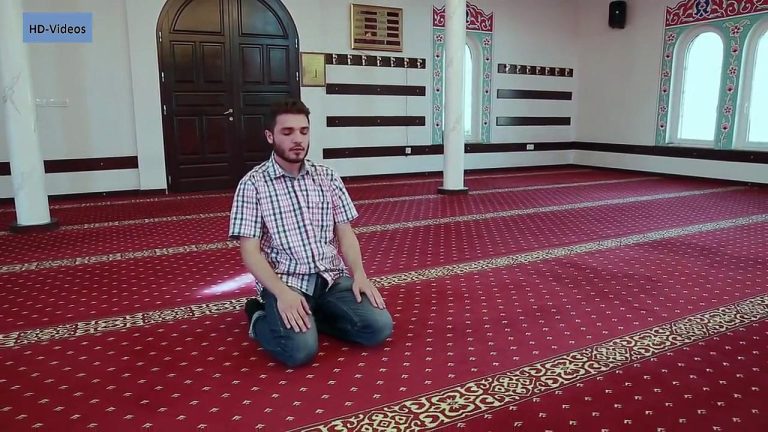
What is the importance of prayer in Islam? How could one perform ablution (wudu’)? How to perform prayer in the correct manner? How to prepare for offering prayer?
What is the Friday Prayer so special? Why is it obligatory, and upon whom? How important is for the life of a Muslim? How is it offered?
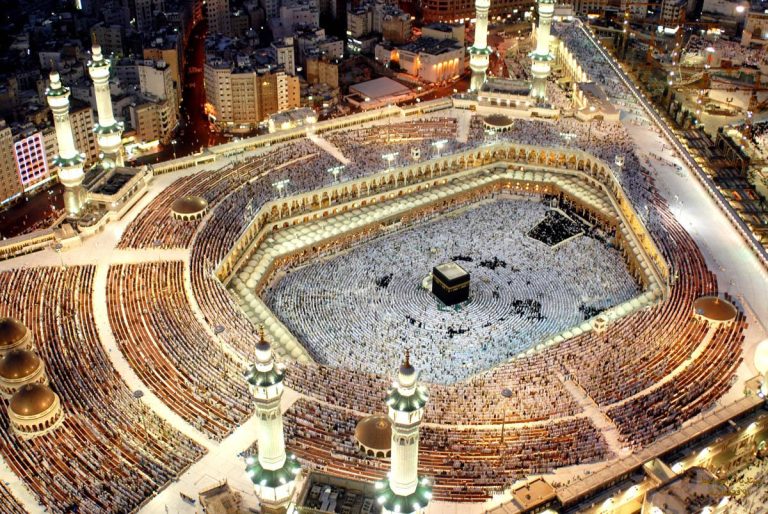
Changing the Qiblah was intended as the abolition of the sanctity of space whatever it may be and the confirmation of the sanctity of God Alone wherever the Qiblah direction may be
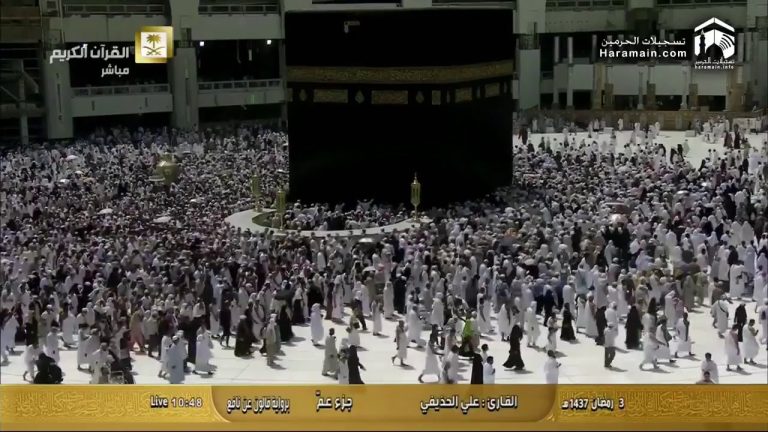
Here you can hear the beautiful recitation of the Qur’an, live from Makkah each day, in the blessed month of Ramadan, watch millions attend the Taraweeh
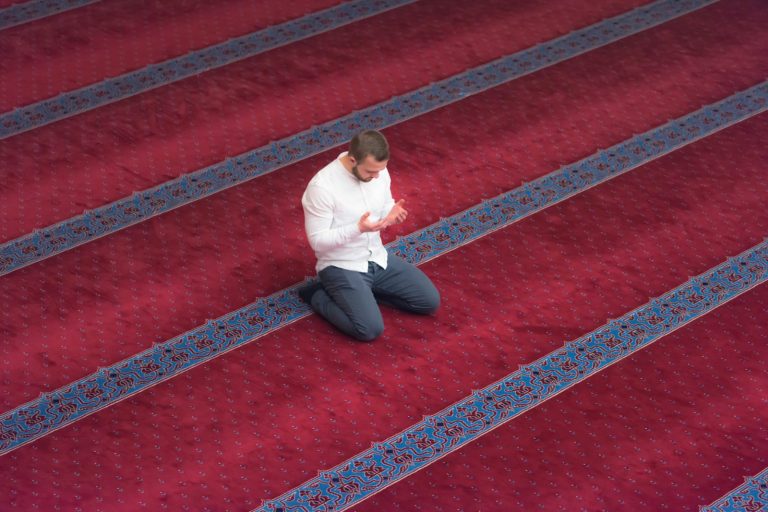
The supererogatory prayers may be performed before and/ or after obligatory congregational prayers. They make the person more beloved by Allah...

There are 15 verses of the Gracious Quran the Prophet (PBUH) prostrated upon reciting. Muslims are recommended to do the same during and outside the prayer.

Prayer is one of the righteous deeds people is recommended to perform when there is an eclipse. This sign is a warning to people to repent, pray, etc.
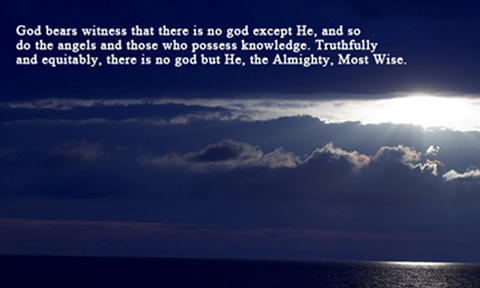
The Shahadah is the key to the gates of Paradise, but in order for it to work, be accepted by God, it needs to have the right ridges. Learn about them here…

Having specific times each day to be close to Allah helps Muslims remain aware of the importance of their faith, and the role it plays in every part of their lives. Muslims start their day by cleaning themselves and then standing before their Lord in prayer. The prayers consist of recitations from the Qur'an in Arabic and a sequence of movements: standing, bowing, prostrating, and sitting.

The first part of this testimony states that Allah has the exclusive right to be worshipped inwardly and outwardly, by one’s heart and limbs. In Islamic doctrine, not only can no one be worshipped apart from Him, absolutely no one else can be worshipped along with Him. He has no partners or associates in worship. Worship, in its comprehensive sense and all its aspects, is for Him alone.

The whole concept of wealth is considered in Islam as a gift from Allah. Allah, who provided wealth to the person, made a portion of it for the poor. So, the poor have a right over one’s wealth. Zakah reminds Muslims that everything they have belongs to their Lord. People are given their wealth as a trust from Him, and Zakah is intended to free Muslims from the love of money.
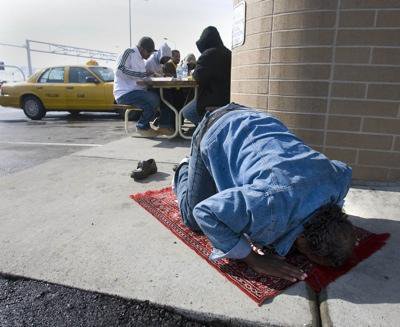
How worshipping God is viewed in Islam? Why do we humans need prayer, fasting, etc.? Can’t I be a devoted believer without such ritual acts if I am pious and God-conscious enough?

It’s for a fact! On a day only known by God this life will come to an end. What does this mean? Why are we required to believe in that?

The status of worship in your heart and your dedication to it shows what a kind of believer you are, your level of commitment to God. Read more…
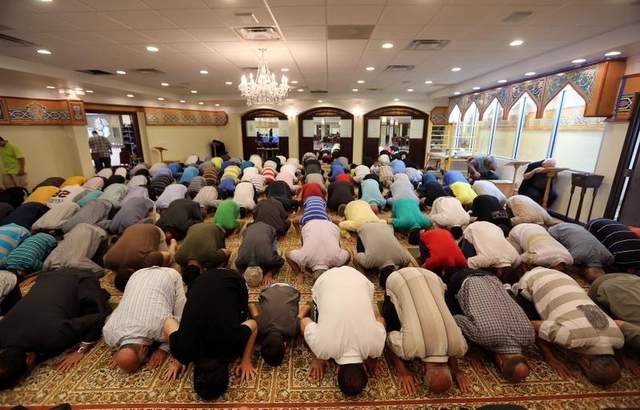
Why is worship obligatory upon Muslims? What does worship teaches us? What are its impacts on individual and society?
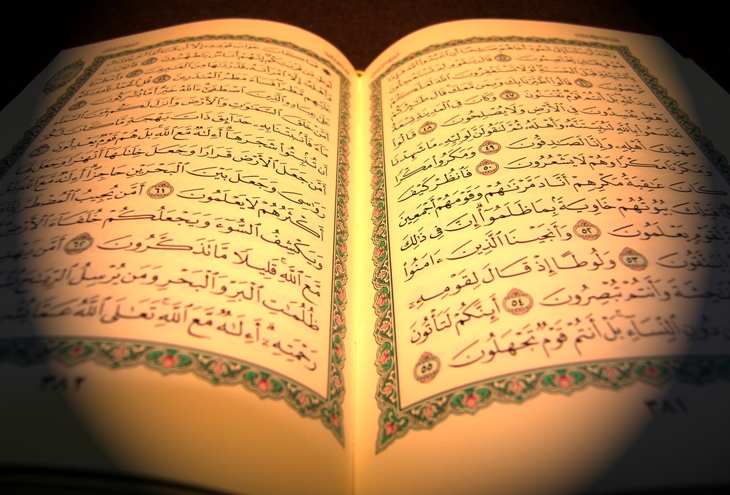
What are the scriptures that were revealed before the Qur’an, to whom were revealed? What do they have in common? Why do we need to believe in them?

What duties do we, creatures, owe to God? What are the requirements of being Muslim? What sense do they have to man? What are their benefits?
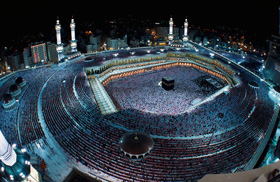
If not a visit to the shrines of saints, to monasteries for help from holy men, or to sights where miracles are supposed to have occurred, what Hajj is all about? Why do Muslims do this Pilgrimage is made to the Ka`bah?